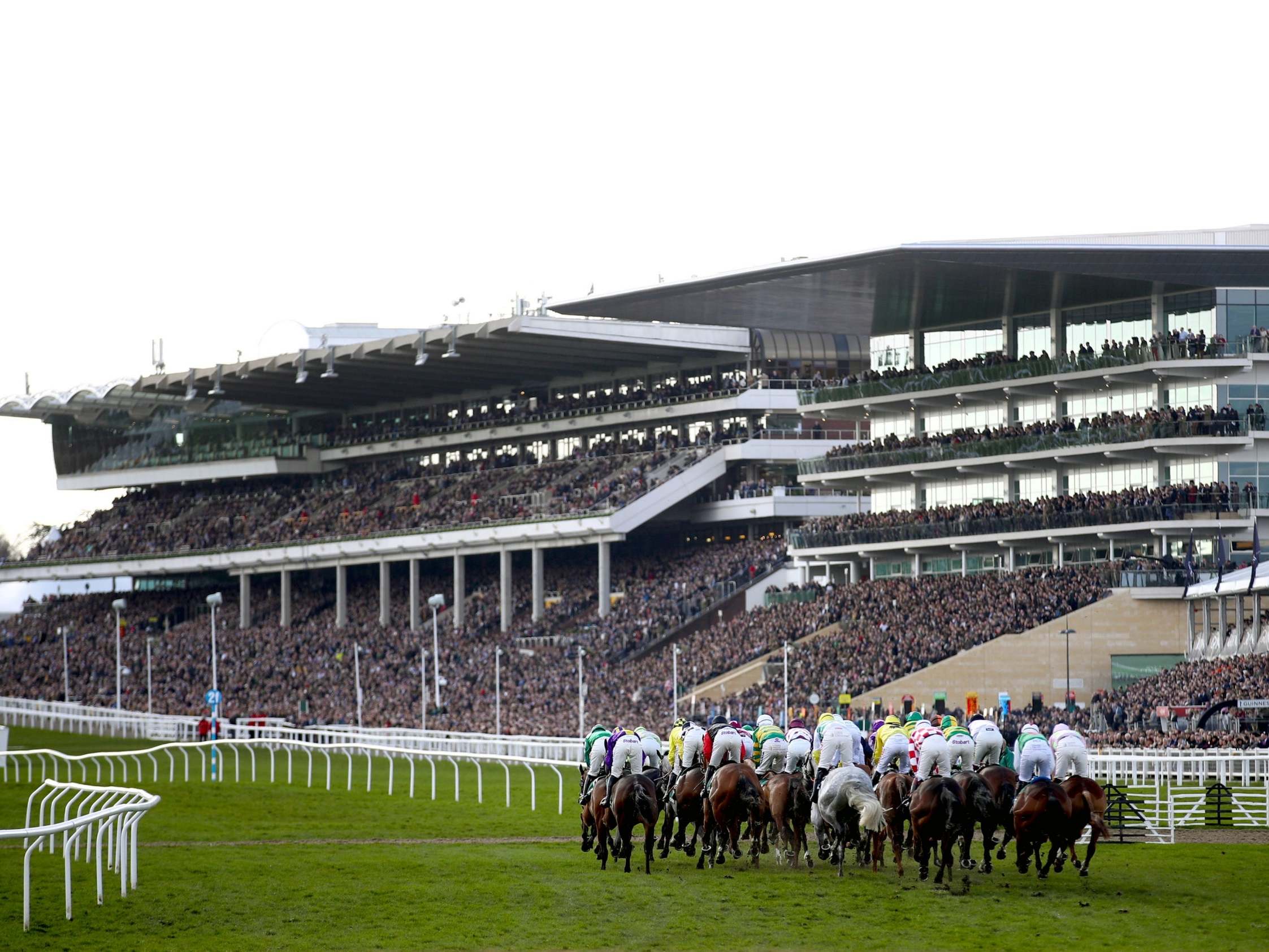Coronavirus: Major UK sports events ‘shut down too late’ and it ‘probably cost lives’, says top scientist
Study says high number of Covid-19 cases seen in Cheltenham and Liverpool following mass gatherings

Your support helps us to tell the story
From reproductive rights to climate change to Big Tech, The Independent is on the ground when the story is developing. Whether it's investigating the financials of Elon Musk's pro-Trump PAC or producing our latest documentary, 'The A Word', which shines a light on the American women fighting for reproductive rights, we know how important it is to parse out the facts from the messaging.
At such a critical moment in US history, we need reporters on the ground. Your donation allows us to keep sending journalists to speak to both sides of the story.
The Independent is trusted by Americans across the entire political spectrum. And unlike many other quality news outlets, we choose not to lock Americans out of our reporting and analysis with paywalls. We believe quality journalism should be available to everyone, paid for by those who can afford it.
Your support makes all the difference.The scientist in charge of the UK’s largest coronavirus tracking project has said that two major sports events “caused increased suffering and death” by going ahead in March.
The Cheltenham Festival and Liverpool’s Champions League game against Atletico Madrid were held in mid-March, despite similar events in other European countries being cancelled because of concerns about coronavirus.
Tim Spector, a professor of genetic epidemiology at King’s College London, said local coronavirus case rates “increased several-fold” after the two events.
Data gathered from millions of volunteers suggests there were Covid-19 “hotspots” after these sporting fixtures, according to the BBC.
Unlike the decision to postpone an upcoming Six Nations rugby match in Dublin, the UK government wanted sporting events to continue at the time.
On 9 March, the day before Cheltenham opened its doors to tens of thousands of spectators and two days before the WHO declared a pandemic, the culture secretary Oliver Dowden dismissed calls for mass outdoor gatherings to be banned.
Mr Dowden told the BBC: “There’s no reason for people not to attend such events or to cancel them at this stage.”
However, Prof Spector said “people will have probably died prematurely” because the events were allowed to go ahead.
He also said that sporting events should have stopped at least a week earlier.
Figures seen by the BBC from the Covid-19 Symptom Study show that Cheltenham and Liverpool had some of the highest numbers of suspected cases in the UK in the last week of March.
The study, which is based on information provided by more than 3 million volunteers across the UK, estimates that 5 to 6 per cent of those aged between 20 and 69 had symptoms in the two regions.
Melanie Finn, an Irish journalist who attended the Cheltenham Festival, said the approach in Ireland was very different from the UK’s.
When she flew to England, St Patrick’s Day celebrations had already been cancelled by the Irish government.
“People were in shock. No one could believe that was happening.” she said. “That was an indicator of how serious the Irish government was. When we flew out of Dublin airport it was literally like a ghost town.”
Referring to how people at the festival were not concerned by safety, she added: “It was like the last days of the Roman Empire, and I think there was a little bit of a sense that if it was open, by God they were going to party.”
Ms Finn, who left England midway through the festival over safety concerns, later came down with Covid-19 symptoms and had to take two weeks off work.
The Jockey Club has previously defended its decision to hold the event by saying that it was following government advice at the time.
The Liverpool football match took place on 11 March, despite warnings about the risk posed by fans travelling from Madrid, which was by then the epicentre of Spain’s outbreak.
A Liverpool supporters group called the Spirit of Shankly said it shared its concerns at a council-chaired safety meeting, before being told the match would be played in line with government advice.
Joel Rookwood, a Liverpool fan who has been ill for two months, was at the game and said he thinks he contracted Covid-19 there.
“The celebrations were some of the most physical that I’ve experienced,” he said. “People were jumping all over each other.”
The government has sought to downplay a link between the sporting events and the large number of coronavirus cases reported afterwards in both Cheltenham and Liverpool.
“There are many factors that could influence the number of cases in a particular area, including population density, age, general health, and the position of an area on the pandemic curve,” it said.
Join our commenting forum
Join thought-provoking conversations, follow other Independent readers and see their replies
Comments